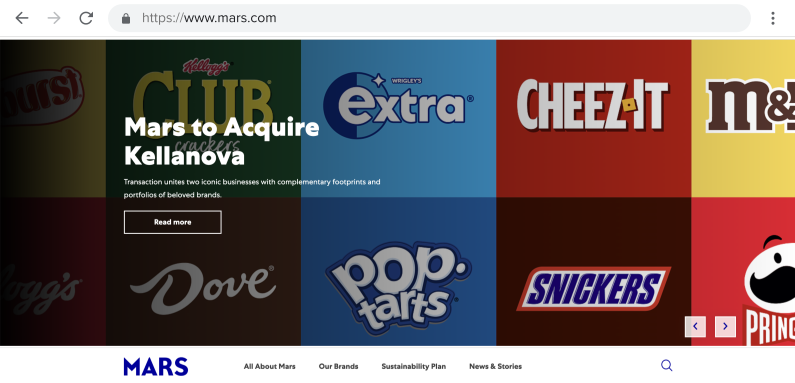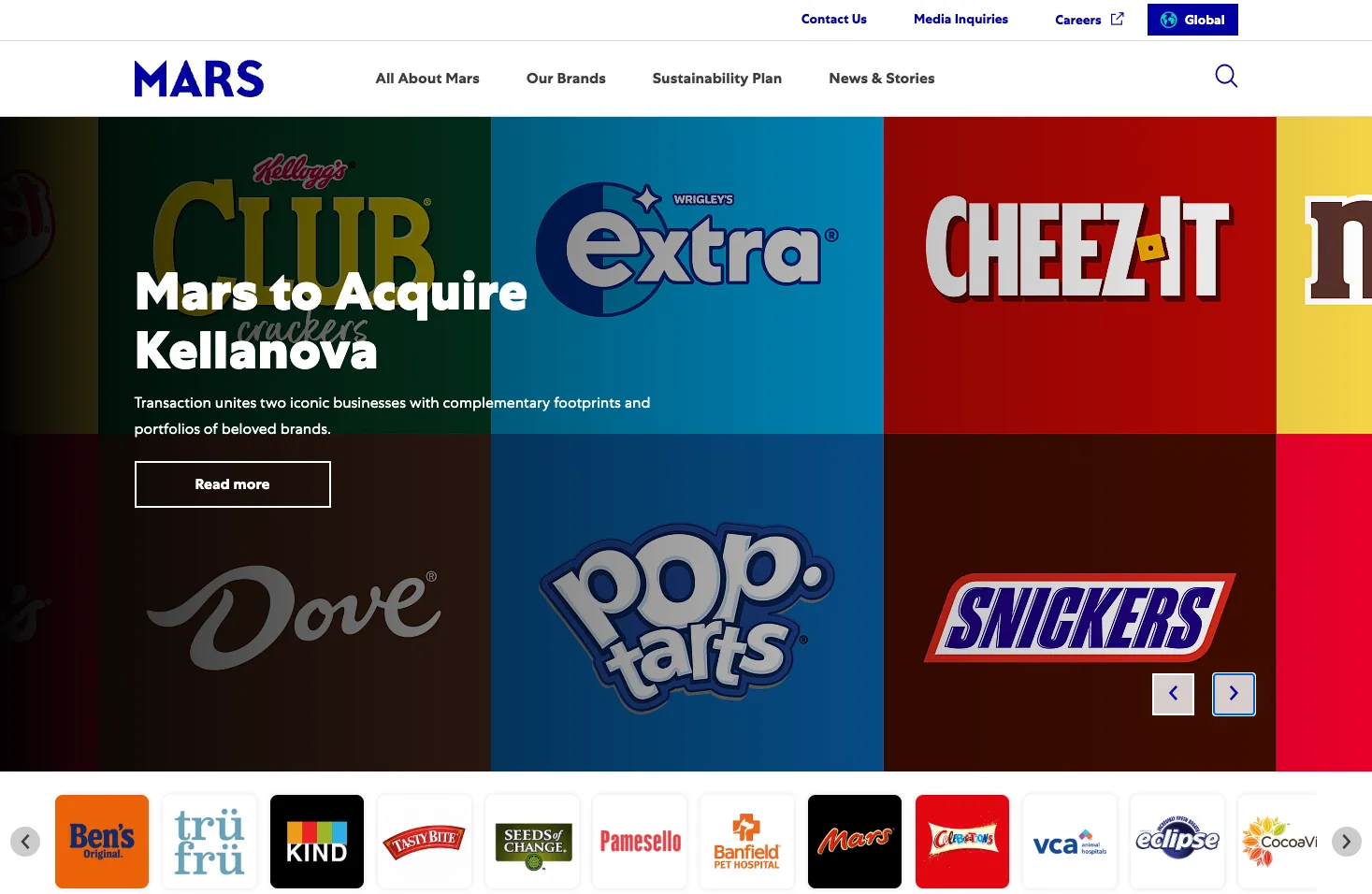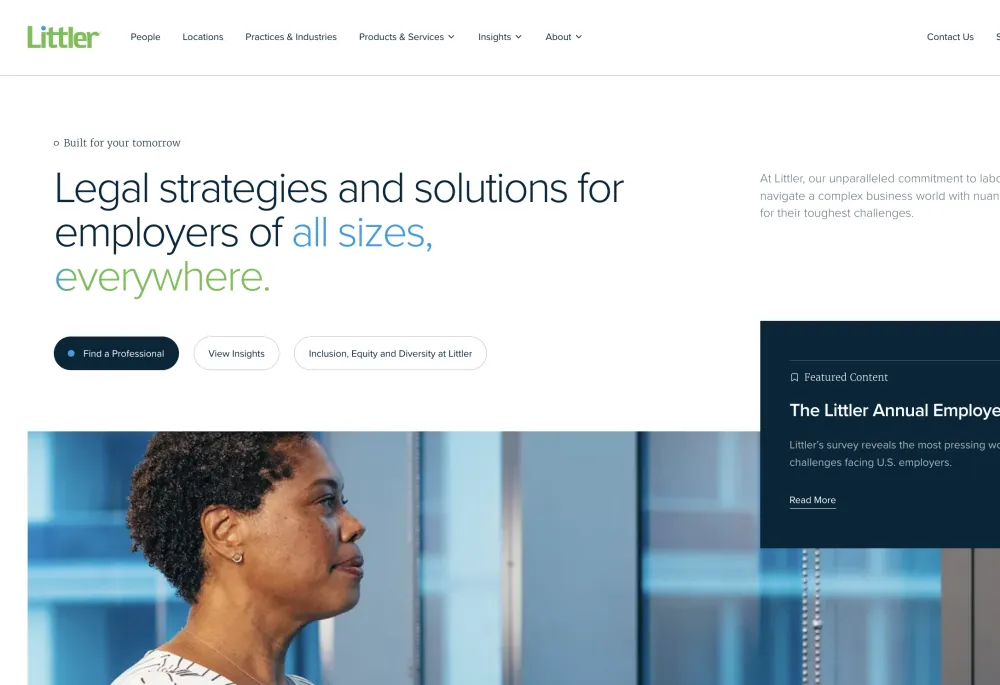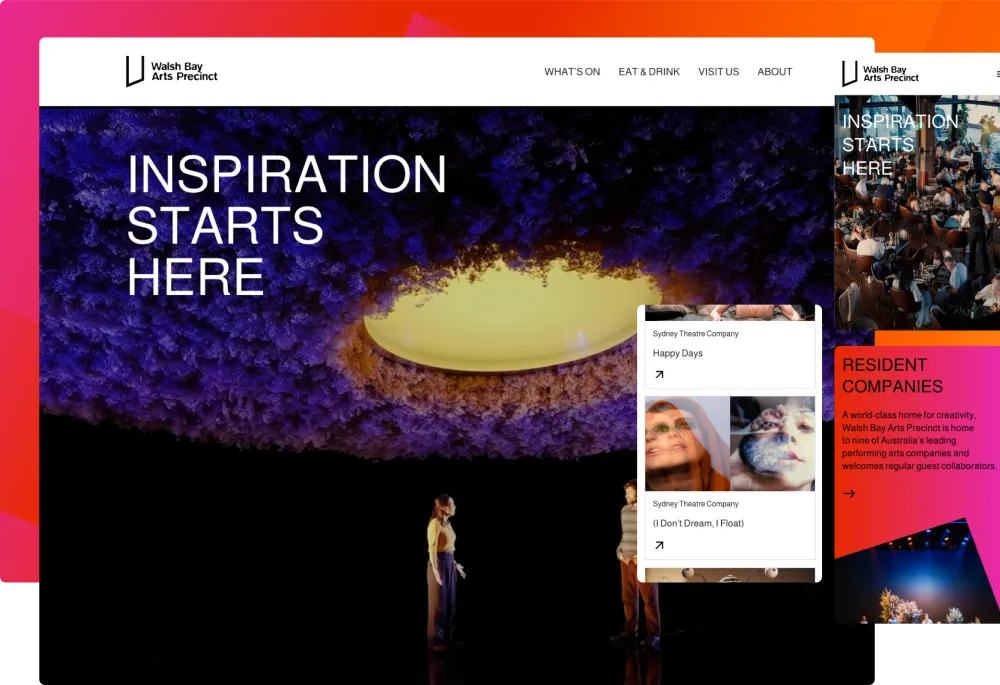Sector(s)
Mars, a global leader in the confectionary and food industry known for brands like M&M’S, SNICKERS, and SKITTLES, embarked on a project to enhance its digital presence by establishing a unified digital strategy. The primary goal was to create a flexible platform that facilitated rapid and cost-effective development of brand and campaign sites while ensuring consistency across more than 180 countries. To address this, Mars partnered with EPAM to develop a "starter kit" featuring shared components and core functionalities that served as a foundation for individual brand identities. This strategy reduced development and maintenance costs, enhanced user engagement, and aligned digital experiences with Mars' high brand standards. Acquia supported this initiative by providing scalable infrastructure and streamlined content management, enabling Mars to achieve significant efficiencies and set the stage for ongoing digital growth.
50% ▼in dev time
40% ▼maint costs
About the project
Mars sought to enhance digital demand and revolutionize consumer interactions with its brands by developing a unified strategy for engaging digital brand experiences. The primary goal was to establish a platform and processes that would enable rapid creation of new brand experiences, all while maintaining consistency, ease of maintenance, and cost control across its diverse portfolio of brands.

Timeline and Major Milestones
The project kicked off with the creation of the "starter kit," a comprehensive toolkit of shared components aimed at providing Mars brands with a standardized process and foundation for building brand and campaign pages. Key milestones included the development of core functionalities, configurable front-end display components, and a library of pre-built integrations to facilitate internal and external teams' ability to launch, manage, and enhance Mars sites efficiently.
Unique Aspects of the Project
This project stood out due to its innovative "starter kit" approach, which centralized essential features such as navigation structure and content localization across Mars properties. By leveraging a shared, configurable theme and a robust set of building block components like carousels and newsletters, the project balanced individual brand identities with a consistent structural framework.
The integration of various tools and services—such as Smartling for translations, Salsify PIM for product data, Salesforce Marketing Cloud for CRM, and OneTrust for GDPR compliance—highlighted its comprehensive approach to building a scalable and versatile digital platform.
Project Management Approach
Mars worked closely with EPAM and leveraged Acquia solutions to implement a standardized development workflow. The Acquia Build and Launch Tool (BLT) ensured the coding standards were met and automated tests were successfully passed before deployment. Acquia Content Hub further managed consistent content distribution across multiple sites, minimizing repetitive tasks and enhancing operational efficiency.
Project Outcome and Problem Solving
The implementation of Mars' starter kit platform accomplished its main objective of standardizing digital systems, processes, and experiences across several markets. This advancement raised the overall digital quality to meet the company’s renowned brand standards. The project successfully reduced duplicate efforts and streamlined technologies, resulting in a significant reduction in costs.
Conclusion
Mars realized a 50% reduction in development time by crafting brand sites using the starter kit instead of starting from scratch, alongside a 40% reduction in ongoing maintenance costs across all sites. Additionally, there was an initial overall cost savings of 20%, with expectations for further savings as the platform continues to scale with new sites. This project empowered Mars to align with the best vendor tools while ensuring compliance through automation and efficient processes, setting a benchmark for future digital transformations.
Back to topWhy Drupal was chosen
Drupal was chosen for the Mars project due to several of its distinctive advantages that aligned perfectly with the project's requirements:
-
Flexibility and Customization:
- Modular Framework: Drupal's modular architecture offered Mars the flexibility to create a wide array of brand-specific sites while maintaining a coherent structure. This adaptability was crucial for reflecting the unique identity of each brand within a consistent framework.
-
Scalability and Efficiency:
- Drupal's robust scalability allowed Mars to manage a portfolio of sites efficiently, accommodating future growth and additional site integrations without needing extensive redevelopment. The platform's ability to centralize core functionalities reduced development time and ensured ease of maintenance.
-
Multilingual and Global Reach:
- With its strong multilingual capabilities, Drupal facilitated seamless content localization, crucial for Mars' global operations across more than 180 countries. This feature ensured that Mars could deliver consistent brand experiences worldwide.
-
Cost-Effectiveness:
- By enabling the reuse of core components and integrations across multiple sites, Drupal reduced Mars' development and maintenance costs by a significant margin, aligning with the project's financial objectives.
-
Integration Capabilities:
- Drupal's open architecture allowed easy integration with various third-party tools and services, such as translation services, CRM systems, and product data management solutions, essential for Mars’s comprehensive "starter kit" approach.

Technical Specifications
Drupal version:
Key modules/theme/distribution used:



